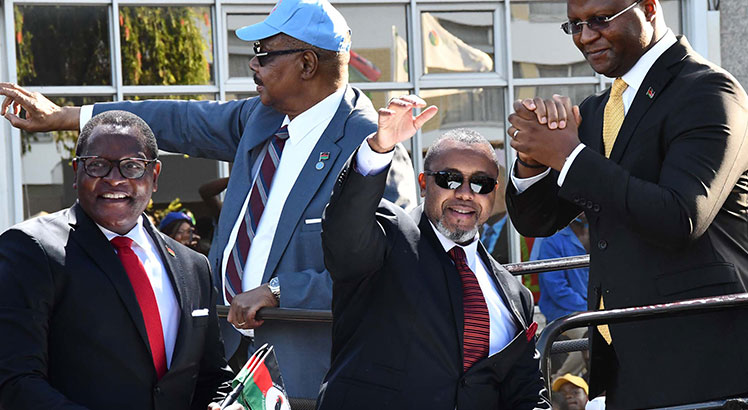Party financing draws EU query
European Union (EU) Ambassador Rune Skinnebach has faulted the sluggish implementation of the Political Parties Act (PPA), especially on party financing, saying the non-disclosure of political party funders is breeding corruption.
The envoy, speaking in an interview on the sidelines of an interaction with the media in Blantyre on Tuesday evening, said the EU monitoring mission in the 2019 Tripartite Elections made several recommendations including declaration of political parties’ sources of funding, but only few have been implemented.
Said Skinnebach: “Some of them [recommendations] are outstanding and if there is one recommendation that I would really like to reiterate in this context is the one regarding financing of political parties.

“I think it’s very important for Malawi and for Malawians that there is complete transparency in this because I am worried that the opposite could cause suspicions of all kinds of corruption that is not good for Malawi.”
He said the EU’s major concern is the welfare of Malawians and expressed worry that the graft fight seems to have lost steam despite supporting the Anti-Corruption Bureau (ACB).
“A clear concern is that the fight against corruption is not as successful as it should be. This issue of paying funds to alleged [businessperson Zuneth] Sattar-related companies is disturbing for the optics,” said Skinnebach.
The EU Ambassador’s sentiments on political parties financing comes weeks after an analysis by governance expert Henry Chingaipe highlighted that failure to implement the PPA has led to competitive clientelism where access to political power is largely based on ability to mobilise and spend money rather than ideas and capabilities for transformation.
He further noted that lack of implementation of the regulatory framework has contributed to corruption in the public sector, especially through public procurement and contract management to generate money to finance politics.
In an interview yesterday, University of Malawi political scientist Boniface Dulani said the challenge is that most political parties that can push for the implementation of PPA are reluctant because its enforcement would also expose them to scrutiny.
He observed that in Malawi, political parties do not get money from their membership, compelling some to raise their resources through dubious deals.
Said Dulani: “Sadly, political parties will look elsewhere to source funds and most likely they will get funds from dubious characters and businesses that are looking for kickbacks from the government.
“If they are in power, they will find ways of siphoning money from the government, for example, by putting up shell companies that on paper supply goods and services. Unless that part of the equation changes, I don’t see how this is going to change.”
During the interview, Skinnebach also said the EU recommended the enactment of an electoral statute to allow the country move from the First-Past-the-Post system to 50-percent-plus-one and introduction of a clear and enforceable ban on the use of State resources for campaigning.
However, the 50-percent-plus-one system was adopted for the presidential election following an interpretation of majority by a five-judge panel of the High Court of Malawi sitting as a Constitutional Court. It’s interpretation and nullification of the 2019 presidential election as well as an order for fresh presidential elections were upheld by the Malawi Supreme Court of Appeal.
President Lazarus Chakwera came to power in 2020 on the platform of fighting corruption through his ‘Hi Five’ platform, which placed the rule of law and fighting corruption high on his agenda.
Ministry of Information and Digitalisation Moses Kunkuyu, who is also the official government spokesperson, yesterday could not comment when asked about the EU envoy’s sentiments and why the Tonse Alliance administration is struggling to stick to the H5 agenda.
In July and September 2021, Malawi Law Society (MLS) asked the Registrar General for a list of political party financiers amid fears that political groupings were captured by businesspersons who look to benefit once the parties are in power.
But the registrar did not provide the information, prompting MLS to apply to the High Court for a judicial review of the decision.
The High Court, on May 19 2022, granted the MLS permission to apply for the judicial review.
The four parties mentioned in the MLS letter are Malawi Congress Party, UTM Party, Democratic Progressive Party and United Democratic Front.
Section 27 (2) compels political parties to disclose to the Registrar of Political Parties sources of their funding and any donations.






p9j0a0